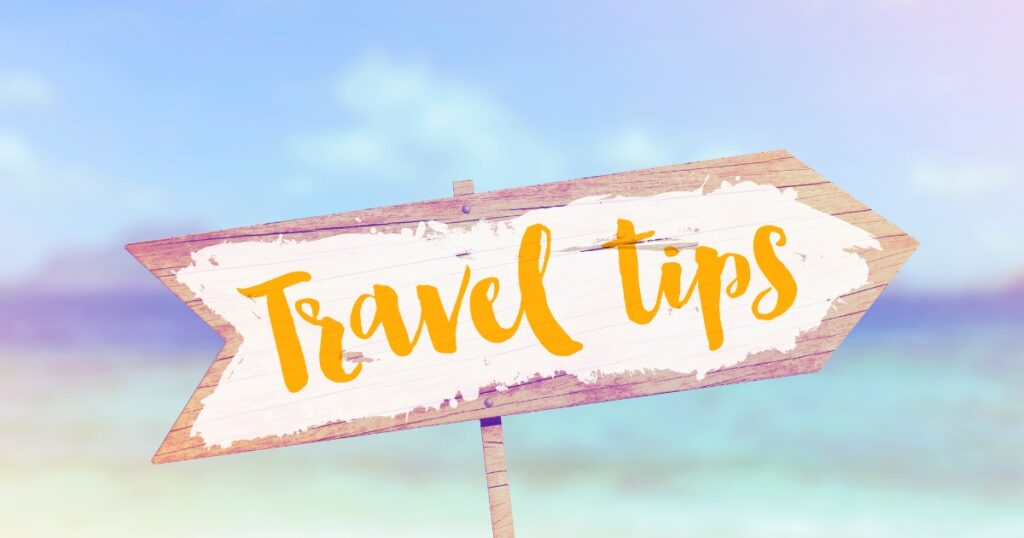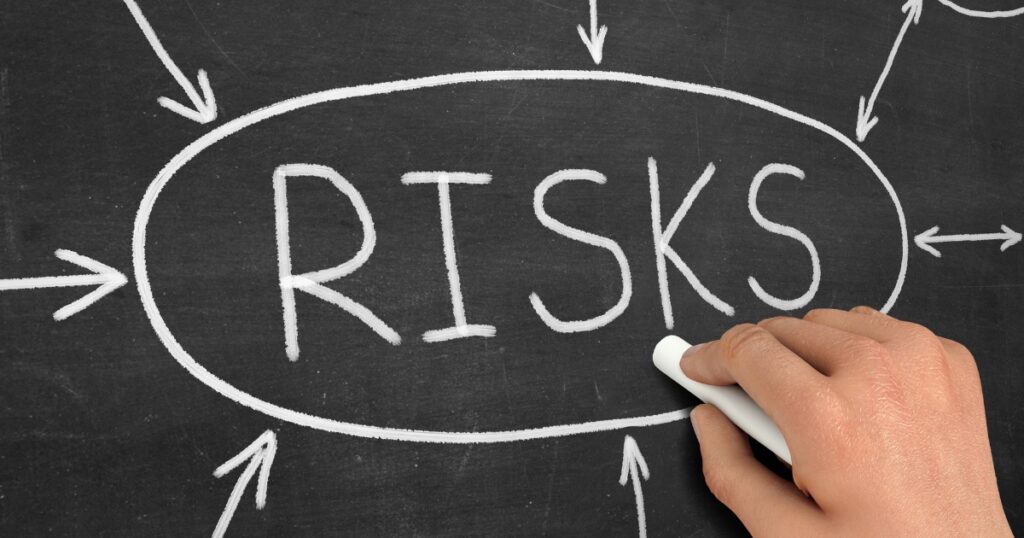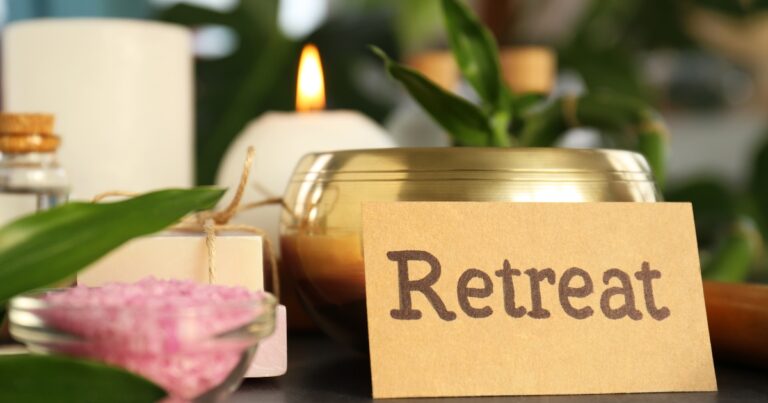Heading down under can seem a bit daunting. Trust us, we get it. Trekking through Australian land comes with its own set of worries. But don’t stress! We’ve done our homework and dug up some top-notch advice that’ll not only keep you safe on your travels but will also ensure you have a ripper of a time.
So, grab a cuppa and read on for tips on how to navigate the Australian adventure safely!
Key Takeaways
- Always do your research on the place you’re visiting in Australia, including checking out the local climate, customs, and any safety issues. This helps you pack right and plan a trip that’s safe and heaps of fun.
- Before booking a place to stay, look at how safe the area is. Choose accommodations with good lighting around them, and make sure there are locks on doors and windows for extra security.
- Plan how you’ll get around safely by booking transport from trustworthy companies. Keep an eye out for dodgy situations at transportation hubs, and keep your valuables hidden.
- Taking care of your mental health is key when travelling. Make some time for yourself to chill out or meditate to keep stress levels down.
- Have a backup plan for emergencies by saving important contact numbers in your phone and knowing where the nearest medical facilities are. It’s also smart to learn some local lingo to better connect with people around you.

General Safety Tips for Travelling in Australia
Research your destination thoroughly before you travel and take note of any safety concerns. Plan your accommodation in advance to ensure a secure and comfortable stay during your trip.
Research your destination
Before we set off on an Australian adventure, we make sure to dive deep into understanding our destination. We look at the climate, understand local customs, and familiarise ourselves with any safety concerns specific to the area.
This might include checking up on the risk of bushfires if we’re heading into rural regions or learning about ocean currents for beach holidays.
We also pay close attention to local laws and regulations to avoid any unwelcome surprises. By gathering this information, we prepare ourselves not just for a journey but for an experience that’s both safe and enriching.
Knowing what’s ahead helps us pack appropriately, plan our itinerary better, and ultimately ensure that our Australian travel remains secure throughout.
Plan your accommodation
When planning your accommodation, consider the location and safety of the neighbourhood. Look for accommodations in well-lit areas with easy access to public transportation or secure parking facilities.
It’s also a good idea to research reviews and ratings from previous guests to ensure that the accommodation meets safety standards and provides a secure environment. Additionally, be mindful of any specific security features, such as locks on doors and windows, security cameras, or onsite security personnel.
Consider booking accommodations that offer 24-hour reception or have emergency contact information readily available. This way, you can seek assistance or guidance at any time if needed.
Plan your transportation
Arrange transportation in advance and ensure it is from a reputable company. Double-check the legitimacy of any rideshare services you use. Familiarise yourself with public transport routes or rental car safety protocols.
Always keep your travel documents handy and know local emergency numbers.
Consider all aspects of travel when planning your transportation, including potential weather conditions or traffic patterns. Remain vigilant at transport hubs and avoid displaying valuable items that could attract unwanted attention or theft.
Check-in with your mental health
Before embarking on your Australian adventure, it’s crucial to take a moment to check in with your mental health. Travelling can be exciting but also stressful. Be aware of any feelings of anxiety or unease and make time for self-care during your trip.
Carve out moments for relaxation, meditation, or simply taking a walk in nature to maintain a healthy mindset throughout your journey.
Remember that taking care of your mental health is just as important as looking after your physical well-being while travelling in Australia. It’s essential to prioritise both aspects for an enjoyable and secure travel experience.
Make an emergency plan
Ensure you have emergency contacts saved in your phone and written down, including local authorities, emergency services, and your country’s embassy or consulate.
Learn the local language
When travelling in Australia, it is essential to learn the local language for better communication and cultural immersion. Understanding common phrases and greetings can help you navigate daily interactions more effectively, such as ordering food or asking for directions.
Learning basic words and expressions in Australian English can also enhance your travel experience by allowing you to engage with locals in a meaningful way. Consider taking a language course or using language learning apps to familiarise yourself with the colloquialisms of the region, which can contribute to a smoother and more enjoyable journey.
Immersing oneself in the local language enriches the travel experience by facilitating seamless communication with locals, fostering deeper cultural understanding, and creating memorable connections during your stay in Australia.
Staying Safe and Avoiding Danger
Choose secure transportation, like licenced taxis or reputable ride-sharing services. Always be cautious and aware of your surroundings while out and about to avoid potential risks.
Choosing safe transport
To ensure a secure journey whilst travelling in Australia, here are some tips for choosing safe transport:
- Research reliable and reputable transportation options, such as licenced taxi services or accredited rideshare companies.
- Use public transport during peak hours when there are more people around, making it safer to travel.
- Select well-lit and populated areas for walking or waiting for transportation, especially at night.
- Avoid hitchhiking and opt for official transportation services to minimise risks.
- Stay alert and aware of your surroundings whilst using any form of transportation to identify potential safety hazards.
- Confirm the legitimacy and safety features of any hired vehicles before using them, ensuring they meet safety standards.
- Follow all safety guidelines provided by the transportation service and use seatbelts in vehicles where available.
Being safe in your accommodation
When staying in your accommodation, ensure that you lock all doors and windows at night and when leaving your room.
- Keep your valuables secure by using the safe provided or locking them away.
- Avoid sharing too much personal information with strangers and be cautious of who you let into your room.
- Report any suspicious activity to the management or local authorities immediately.
- Familiarise yourself with the escape routes and emergency procedures of your accommodation.
Being safe while out and about
When exploring Australia, always stay aware of your surroundings.
- Keep your belongings secure and within sight to avoid theft.
- Stick to well-lit and populated areas, especially at night.
- Avoid displaying expensive items or large amounts of cash.
- Stay informed about the local safety concerns in each area you visit.
- Trust your instincts; if a situation feels unsafe, remove yourself from it immediately.
- Plan your outings, and let someone know where you are going and when you plan to return.
- In case of an emergency, have local emergency numbers saved in your phone.
Socialising safely
When socialising, always stay aware of your surroundings and be cautious of your drinks. Make sure to stick with a group or a friend you trust, especially if you’re in an unfamiliar place.
Avoid sharing personal information with strangers and always have a plan for getting back to your accommodation safely. It’s important to trust your instincts and leave any situation that doesn’t feel right.
Being open-minded is great, but staying safe should be your top priority.
Tips for Solo Women Travellers
For solo women travellers, it’s important to choose safe and reputable accommodation. Research the area to ensure it’s in a secure location with good lighting and solid locks on doors and windows.
When out and about, stick to well-lit areas, stay aware of your surroundings, and consider joining group tours or activities for added security. Always inform someone back home of your plans and check in regularly.
When booking transportation as a solo female traveller, opt for reputable companies or official taxi services. Avoid hitchhiking or accepting rides from strangers unless necessary.
Emergency Preparedness
Establish relationships with hosts, neighbours, and local authorities to ensure a network of support in case of emergency. Improve the structural security of your residence by securing doors and windows and having adequate lighting around the property.
Establishing relationships with hosts, neighbours, and local authorities
To ensure a secure journey, it is important to establish positive relationships with hosts, neighbours, and local authorities while travelling in Australia. Here are some key tips to achieve this:
- Introduce yourself to your host or accommodation manager upon arrival and maintain open communication throughout your stay.
- Familiarise yourself with your neighbours and maintain a friendly rapport with them for added security.
- Take the time to introduce yourself to local law enforcement and emergency services personnel in the area where you are staying.
- Seek advice from locals on safety concerns specific to the area and build rapport by showing respect for their knowledge and experience.
- Stay informed about any neighbourhood watch programmes or community initiatives that promote safety and awareness within the local area.
- Participate in local events or activities to become part of the community, which can provide an additional layer of support during your travels.
Improving structural security of residence
Secure your residence by installing sturdy locks on all doors and windows. Additionally, consider installing a security alarm system to deter potential intruders. Ensure that outdoor lighting is in place, making sure all entry points are well-lit for added safety.
Consider speaking with local authorities or neighbours about any specific safety measures to take in the area.
When travelling, our goal is to feel safe and secure at our place of residence. Thus, taking these steps can help us achieve peace of mind during our stay in Australia.
Knowing emergency contact information
It’s crucial to have essential emergency contact information on hand while travelling in Australia. Here are the key details to keep in mind:
- Save the local emergency number, 000, into your phone for quick access.
- Write down the contact information of your country’s embassy or consulate in Australia.
- Keep a list of important local numbers, such as police, ambulances, and fire services, handy.
- Share your travel itinerary and emergency contact details with a trusted friend or family member.
- Ensure you have access to your travel insurance provider’s emergency helpline number.

Specific Risks to Be Aware of in Australia
Stay informed about the potential risks of bushfires, dangerous animals, extreme weather, and ocean safety while in Australia. For more detailed information on staying safe during your Australian travel adventure, continue reading below.
Bushfires
Bushfires pose a significant threat in Australia, especially during the summer months. It is vital for travellers to stay informed about bushfire warnings and adhere to any evacuation orders issued by local authorities.
When camping or hiking in bushfire-prone areas, always check the fire danger ratings and regulations, as well as be cautious with any open flames or cooking equipment that could potentially start a fire.
In the event of encountering a bushfire, quickly move to a safe location away from the fire’s path and seek refuge in designated emergency shelters or wet areas such as rivers or lakes.
Travellers should familiarise themselves with emergency procedures and evacuation routes provided by their accommodation or tour operators when travelling in regions prone to bushfires.
Dangerous animals
After addressing the potential risks of bushfires, it’s important to be aware of dangerous animals in Australia. When exploring the outback or enjoying nature walks, travellers should stay cautious and informed about local wildlife.
Always keep a safe distance from wild animals, refrain from feeding them, and follow any signs or guidelines provided by park authorities. If you encounter snakes or spiders, avoid provoking them and seek immediate medical attention if bitten.
It’s crucial to research specific areas and their native species before embarking on outdoor adventures to ensure a safe and enjoyable experience in Australian wildlife habitats.
While swimming at beaches or exploring oceans, it’s essential to be mindful of marine life such as jellyfish, sharks, and crocodiles in certain regions. Before diving into unfamiliar waters, consult with locals about potential hazards and adhere to any warning signs posted by beach authorities.
Extreme weather
When travelling in Australia, it’s crucial to be well-prepared for extreme weather conditions. In some parts of the country, severe heatwaves can pose a serious threat, so it’s essential to stay hydrated and seek shade during the hottest parts of the day.
Additionally, sudden thunderstorms or cyclones can occur in certain regions, so keeping an eye on weather forecasts and following local advice is vital for staying safe.
Being aware of bushfire risks is also important, as Australia is prone to wildfires during dry seasons. Understanding fire danger ratings and having an evacuation plan in place are key precautions for travellers to take.
Ocean safety
When swimming in Australia, always heed local safety signs and flags to avoid dangerous ocean conditions. Remember to swim at patrolled beaches where lifeguards can monitor your safety and provide assistance if needed.
Stay within the designated swimming areas and never swim alone, especially during unfamiliar tides or currents. If you’re caught in a rip current, try to stay calm, float with the current, and signal for help by waving your hand.
Additionally, be cautious of marine stingers during certain seasons in northern Australia; wear protective clothing or use appropriate repellents to prevent painful encounters.
Beachgoers should also protect themselves from excessive sun exposure by using sunscreen with high SPF levels, wearing UV-protective clothing such as rashguards or hats, seeking shade during peak sun hours, and staying hydrated throughout the day.
Resources and Additional Information
Find travel insurance options suitable for your trip, and understand what Medicare covers while in Australia. Stay updated with the latest news by following reliable social media accounts, and keep important local phone numbers and websites handy for quick reference.
Travel insurance
Travel insurance is an essential aspect of your trip planning. Ensure that you have comprehensive coverage for medical emergencies, trip cancellations, and lost belongings. It’s crucial to read the small print and understand what your policy covers, including any exclusions or limitations.
Be sure to disclose any pre-existing medical conditions to the insurer so that you’re adequately covered during your travels in Australia.
Upon arrival in Australia, familiarise yourself with the local healthcare system and how it intersects with travel insurance. In case of a medical emergency, seek assistance promptly and keep all relevant documents, such as insurance policies and emergency contact numbers, readily accessible.
Medicare in Australia
Before travelling to Australia, it’s important to familiarise yourself with the country’s healthcare system. Medicare is the national public health insurance scheme that provides access to a range of medical services and prescriptions at subsidised rates for Australian residents.
As an eligible visitor to Australia from countries with reciprocal healthcare agreements, you may also be entitled to some essential medical treatment under Medicare. It’s advisable to obtain travel insurance that covers any gaps in Medicare benefits and includes coverage for emergency medical evacuation.
When seeking healthcare in Australia, always carry your passport and relevant documentation, such as your visa or travel insurance policy. If you need non-urgent medical attention, consider visiting a bulk billing general practitioner who can charge directly to Medicare.
News updates
In addition to arranging for Medicare coverage during your travels in Australia, it’s essential to stay informed with news updates that may affect your safety and travel plans. Keeping an eye on local news sources or subscribing to government travel advisories can provide you with crucial information about any potential risks, such as extreme weather conditions, natural disasters, or civil unrest.
Social media accounts of relevant authorities and emergency services can also be a quick way to receive real-time updates and alerts during your visit. Stay connected and aware by following these reliable sources for the latest news and safety notifications while exploring the beautiful landscapes of Australia.
As tourists or travellers visiting Australia, staying up-to-date with current events through reputable news outlets will help us make informed decisions about our itinerary and ensure a safe journey throughout our visit.
Social media accounts to follow
Stay updated and connected with the latest news and information by following these social media accounts:
- Tourism Australia: Keep up with events, travel tips, and stunning destinations across the country.
- Australian Government Department of Health: Stay informed about health updates, safety alerts, and emergency information.
- Bureau of Meteorology: Receive weather forecasts, warnings, and updates for your travel locations.
- Australian Red Cross: Access resources on first aid, emergency preparedness, and community support services.
- Australian Federal Police (AFP): Stay aware of travel advisories, security precautions, and law enforcement updates.
Helpful websites and phone numbers
When seeking additional resources for travel safety in Australia, it’s essential to have access to helpful websites and local phone numbers. The following list provides valuable contacts and information that can assist you in staying safe during your travels:
- Australian Government’s Smart Traveller website: Offers travel advisories, visa information, and emergency contact numbers.
- Emergency Services: Australia-wide emergency number: 000 (for ambulance, fire, or police)
- Tourism Australia: Provides comprehensive travel guides, safety tips, and information on local customs and culture.
- Weather updates: Visit the Bureau of Meteorology website for accurate weather forecasts and alerts.
- The Australian Red Cross: offers first aid training resources and emergency preparedness guidance.
- Health Direct Helpline: A 24/7 telephone health advice service providing immediate support for non-emergency medical situations.
- Local transport authorities: for up-to-date public transport schedules, route maps, and safety advisories.
- Wildlife rescue organisations: Contact details for animal welfare groups in case of encounters with native wildlife.
- Consular Assistance: Contact the details of your country’s embassy or consulate in Australia for assistance in case of emergencies or lost documents.
- Internet connectivity options: information on reliable Wi-Fi hotspots or SIM card providers for internet access during your stay.
Learn More About Australian Travel Safety and Tips
In summary, ensuring a secure journey in Australia requires careful planning and preparation. Researching destinations, securing safe accommodation, and establishing emergency plans are crucial steps for travellers.
Staying aware of potential risks, such as bushfires or dangerous animals, is also essential for a safe trip. By following these tips and staying informed through local resources, tourists can enjoy an unforgettable experience while prioritising their safety.



